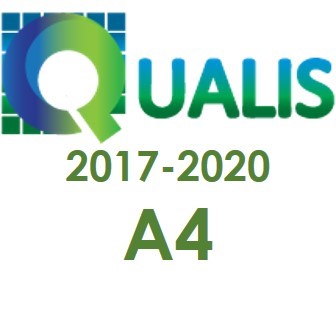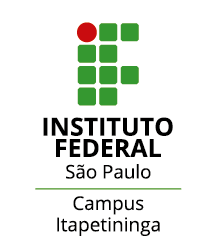Professores enfrentando in/equidades
compreensão, reconhecimento e ação
Palavras-chave:
professores, estratégias de equidade, compreensão da equidade, reconhecimento da equidade, ações de equidadeResumo
O trabalho de equidade dos professores é frequentemente discutido na literatura de pesquisa, no entanto, há pouca evidência empírica sobre a natureza deste trabalho. Este artigo explora os entendimentos, reconhecimentos e ações dos professores em relação às in/equidades em suas escolas. Os dados foram obtidos a partir de entrevistas com quinze professores de escolas urbanas que se dedicam ao trabalho de equidade. Embora os pesquisadores reconheçam que a compreensão da equidade e da diversidade desempenha um papel fundamental na preparação dos professores para lidar com as iniquidades em suas escolas, pouco se sabe sobre esse processo. Os resultados mostram que, embora todos os participantes compartilhem um compromisso comum com o ensino pela equidade, eles mantinham ideias diferentes sobre o significado da equidade, o que era a equidade e qual deveria ser seu papel para corrigir a iniquidade. A compreensão dos participantes sobre in/equidade revela existir em um espectro de menos para mais desenvolvido, como foram suas ações. Os resultados também ilustram inconsistências no que diz respeito ao lugar onde os participantes existiam na continuidade do entendimento em relação às suas ações. A natureza do nível de compreensão dos participantes, o modo como descreveram os seus reconhecimentos de equidade e as ações que empreenderam para abordar as iniquidades, são descritos tematicamente para ilustrar a sua natureza geral, dado que há pouca informação disponível sobre a compreensão e reconhecimento dos professores sobre iniquidade.
Downloads
Referências
ADAMS, M.; BELL, L. A.; GRIFFIN, P. (Org.). Teaching for diversity and social justice. 2 nd ed. New York, NY: Routledge, 2007.
ATHANASES, S. Z.; OLIVEIRA, L. C. de. Advocacy for equity in classrooms and beyond: new teachers’ challenges and responses. Teachers College Record, v. 110, n. 1, p. 64-104, 2008.
AVELING, N. Anti-racism in schools: A question of leadership? Discourse: Studies in the Cultural Politics of Education, v. 28, n.1, p. 69-85, 2007.
BANKS, J. A.; BANKS, C. A. M. Equity pedagogy: an essential component of multicultural education. Theory into Practice, v. 34, n.3, p. 152-168, 1995.
BANKS, J. et al. Teaching diverse learners. In: DARLING-HAMMOND , L.; BRANSFORD, J. (Org.). Preparing teachers for a changing world: what teachers should learn and be able to do. San Francisco: John Wiley & Sons, 2007. p. 232-274.
BANKS, J. A. An introduction to multicultural education. 2. nd ed. Boston: Allyn and Bacon, 1999.
BROWN, K. E. Leadership for social justice and equity: weaving a transformative framework and pedagogy. Educational Administration Quarterly, v. 40, n. 1, p. 77-108, 2004.
BROWN, W. American nightmare: Neoliberalism, noeconservatism, and de-democratization. Political Theory, v. 34, n. 6, p. 690-714. 2006.
BROWN, K. M. Assessing preservice leaders' beliefs, attitudes, and values regarding issues of diversity, social justice, and equity: a review of existing measures. Equity & Excellence in Education, v. 37, n. 4, p. 332-342, 2004.
COCHRAN SMITH, M. et al. Good and just teaching: the case for social justice in teacher education. American Journal of Education, v. 115, n. 3, p. 347-377, 2009.
DEI, G. J. S. et al. Removing the margins: the challenges and possibilities of inclusive schooling. Toronto: Canadian Scholars’ Press, 2003.
DEWEY, J. Democracy and education. Toronto: Collier-Macmillan Canada, 1966.
FREIRE, P. Education for critical consciousness. New York: Continuum, 1973.
FREIRE, P. Pedagogy of the oppressed. New York: Continuum, 1992.
GANDARA, P. Learning English in California: guideposts for the nation. In: SUAREZ-OROZCO, M.; PAEZ, M. (Orgs.). Latinos: remaking America. Berkeley: University of California Press, 2002. p. 339-348.
GARCÍA, S.; GUERRA, P. Deconstructing deficit thinking. Education and Urban Society, v. 36, n. 2, p. 150-168, 2004.
GERIN-LAJOIE, D. (Org.). Educators’ discourses on student diversity in Canada: context, policy, and practice. Toronto: Canadian Scholars Press, 2008.
GILLBORN, D. Citizenship, ‘race’ and the hidden curriculum. International Studies in Sociology of Education, v. 2, n. 1, p. 57-73, 1992.
HARPER, H. Difference and diversity in Ontario schooling. Canadian Journal of Education, v. 22, n. 2, 1997.
HEANEY, T. Issues in Freirean pedagogy. Thresholds in Education, v. 31, n. 4, 1995.
HELMS, J. E. Toward a model of white racial identity development. College student development and academic life: psychological, intellectual, social and moral issues, 1997. p. 49-66.
JENKS, C. Whom must we treat equally for educational opportunity to be equal? Ethics, v. 98, n. 3, p. 518-533, 1998.
KISSEN, R. M. Getting ready for Benjamin: preparing teachers for sexual diversity in the classroom. Lanham, MD: Rowman & Littlefield, 2002.
KUMASHIRO, K. Against repetition: addressing resistance to anti-oppressive change in the practices of learning, teaching, supervising and researching. Harvard Educational Review, v. 72, n. 1, p. 67-93, 2002.
KUMASHIRO, K. et al. Preparing teachers for anti-oppressive education: International movements. Teaching Education, v. 15, n. 3, p. 257-275, 2004.
LADSON-BILLINGS, G. But that's just good teaching! the case for culturally relevant pedagogy. Theory into Practice, v. 34, n. 3, p. 159-165, 1995.
LADSON-BILLINGS, G. Crossing over to Canaan: the journey of new teachers in diverse classrooms. The Jossey-Bass education series. San Francisco: Jossey-Bass, 2001.
LADSON-BILLINGS, G. From the achievement gap to the education debt: understanding achievement in U.S. schools. Educational Researcher, v. 35, n. 7, p. 3-12, 2006.
LOVE, A., & KRUGER, A. C. Teacher beliefs and student achievement in urban schools serving African American students. The Journal of Educational Research, v. 99, n. 2, p. 87-98,128, 2005.
MCGEE BANKS, C. A.; BANKS, J. A. Equity pedagogy: an essential component of multicultural education. Theory into Practice, v. 34, n. 3, p. 152-158., 1995.
MCLAREN, P. Life in Schools: an introduction to critical pedagogy in the foundations of education. 5. ed. Boston: Allyn & Bacon, 2007.
MERRIAM, S. B. Qualitative research and case study applications in education: revised and expanded from case study research in education. San Fransico: Jossey Bass, 1998.
MERRYFIELD, M. M. Why aren't teachers being prepared to teach for diversity, equity, and global interconnectedness? A study of lived experiences in the making of multicultural and global educators. Teaching and Teacher Education, v. 16, n. 4, p. 429-443, 2000.
MILNER, H. What does teacher education have to do with teaching? Implications for diversity studies. Journal of Teacher Education, v. 61, n. 1-2, p. 118-131, 2010.
MISHNA, F.; WIENER, J.; PEPLER, D. Some of my best Friends - Experiences of bullying within friendships. School Psychology International, v. 29, n. 5, p. 549-573, 2008.
MITCHELL, L. A. Becoming culturally responsive teachers in today’s diverse classroom. In: AMERICAN EDUCATIONAL RESEARCH ASSOCIATION ANNUAL MEETING, 2009, San Diego. Proceedings… San Diego, 2009. p. 1-50.
NIETO, S. Placing equity front and center: some thoughts on transforming teaching education for a new century. Journal of Teacher Education, v. 51, n. 3, p. 180-187, 2000.
NIETO, S. Affirming diversity: the sociopolitical context of multicultural education. 4th ed. New York: Allyn & Bacon, 2004.
PEPLER, D. J. et al. An evaluation of an anti-bullying intervention in Toronto schools. Canadian Journal of Community Mental Health, v. 13, p. 95–110, 1994.
PETERS, S.; REID, K. Resistance and discursive practice: promoting advocacy in teacher undergraduate and graduate programmes. Teaching and Teacher Education, p. 551-558, 2009.
POHAN, C. A. Preservice teachers' beliefs about diversity: uncovering factors leading to multicultural responsiveness. Equity & Excellence in Education, v. 29, n. 3, p. 62-69, 1996.
PORTELLI, J. P. Exposing the hidden curriculum. Journal of Curriculum Studies, v. 25, n. 4, p. 343-358, 1993.
REYNOLDS, A. J.; WALBERG, H. J.; WEISSBERG, R. P. Promoting positive outcomes: Issues in children's and families' lives. Issues in children's and families' lives. In REYNOLDS, A. J.; WALBERG, H. J.; WEISSBERG, R. P. (Orgs.). The University of Illinois at Chicago series on children and youth. Washington: Child Welfare League of America, 1999.
RYAN, J. Educational administrators' perceptions of racism in diverse school contexts. Race, Ethnicity and Education, v. 6, n. 2, 145-164, 2003.
RYAN, J. Inclusive leadership. San Francisco: Jossey Bass, 2006.
RYAN, J. Struggling for inclusion: educational leadership in a neo-liberal world. Charlotte: Information Age Publishing, 2012.
RYAN, J.; ROTTMAN, C. Educational leadership and policy approaches to social justice. Journal of Educational Administration and Foundations, v. 18, n. 1 e 2, 2007.
SHANAHAN, N. Safe at school: gay and lesbian issues in the classroom. Our Schools, our Selves, p. 30-35, 2006.
SLEETER, C. E. Restructuring schools for multicultural education. Journal of Teacher Education, v. 43, n. 2, p. 141-148, 1992.
SLEETER, C. E. How white teachers construct race. In: GILLBORN, D.; LADSON-BILLINGS, G. (Orgs.). The Routledge Falmer reader in multicultural education. Abingdon: Routledge, 2004. p. 163-178.
SLEETER, C. E. An invitation to support diverse students through teacher education. Journal of Teacher Education, v. 59, n. 3, p. 212-219, 2008.
SLEETER, C. E. Becoming white: Reinterpreting a family story by putting race back into the picture. Race Ethnicity and Education, v. 14, n. 4, p. 421-433, 2011.
SOLOMON, R. P. et al. Brave new teachers: doing social justice work in neo-liberal times. Toronto: Canadian Scholars’ Press, 2011.
STONE, D. Policy paradox: the art of political decision making. 3. ed. New York: Norton and Company, 2012.
SULLIVAN, A. Cultural capital and educational attainment. Sociology, v. 35, n. 4, p. 893-912, 2001.
TROYNA, B. Beyond multiculturalism: towards the enactment of anti‐racist education in policy, provision and pedagogy. Oxford Review of Education, v. 13, n. 3, p. 307-320, 1987.
VALENCIA, R. R. "Mexican Americans don't value education!" on the basis of the myth, mythmaking, and debunking. Journal of Latinos and Education, v. 1, n. 2, p. 81-103, 2002.
VILLEGAS, A. M.; LUCAS, T. Educating culturally responsive teachers: a coherent approach. New York: State University of New York Press, 2002.
VILLEGAS, A. Dispositions in teacher education. Journal of Teacher Education, v. 58, n. 5, p. 370-380, 2007.
WHIPP, J. Developing socially just teachers: the interaction of experiences before, during, and after teacher preparation in beginning urban teachers. Journal of Teacher Education, v. 64, n. 5, p. 454-467, 2013.
WIGGINS, R. A.; FOLLO, E. J.; EBERLY, M. B. The impact of a field immersion program on pre-service teachers' attitudes toward teaching in culturally diverse classrooms. Teaching and Teacher Education, v. 23, n. 5, p. 653-663, 2007.
Downloads
Publicado
Como Citar
Edição
Seção
Licença
Copyright (c) 2016 Revista Internacional de Formação de Professores

Este trabalho está licenciado sob uma licença Creative Commons Attribution-NonCommercial-ShareAlike 4.0 International License.



 Este trabalho está licenciado sob uma licença
Este trabalho está licenciado sob uma licença 